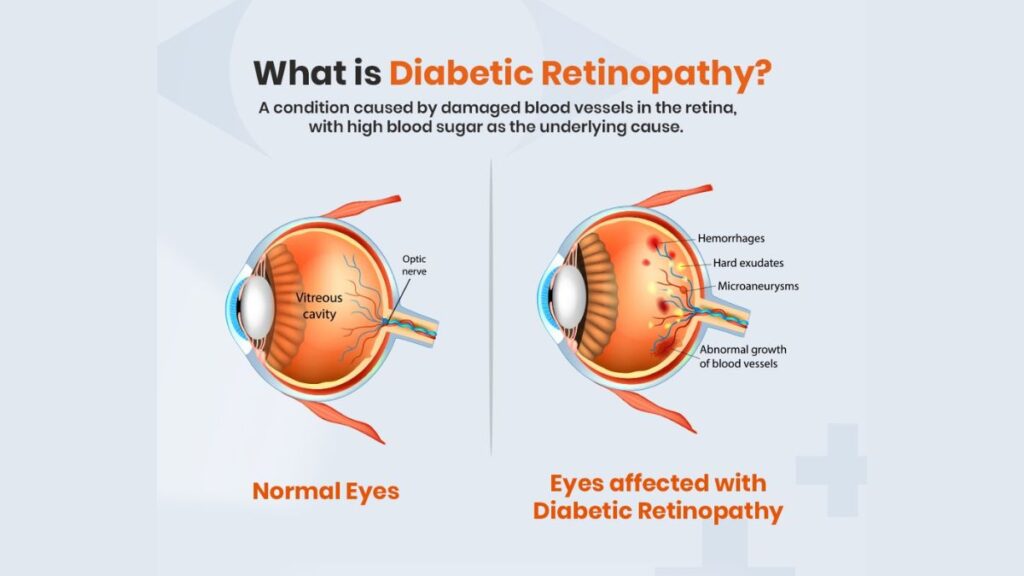Diabetic retinopathy is a common snag of diabetes that affects the vision. It occurs when high blood sugar levels damage the blood vessels in the retina, leading to vision impairment and, in severe cases, even blindness. The question that many individuals with diabetes have is whether diabetic retinopathy can be reversed. In this blog, we will explore the different subtopics related to this question and shed light on the possibilities of reversing the effects of diabetic retinopathy.
Diabetic Retinopathy Eye Problems Treatment Options:
Early Detection and Management
Early detection plays a crucial role in managing diabetic retinopathy. Regular eye examinations are essential for monitoring the condition and identifying any changes in the eyes. With advancements in medical technology, eye specialists can now detect diabetic retinopathy at its early stage, providing an opportunity for early intervention and management. By keeping blood sugar levels under control, managing blood pressure, and adopting a healthy lifestyle, individuals can slow down the progression of the condition and minimize further damage to the retina.
Laser Treatment and Surgical Interventions
In certain cases, laser treatment or surgical interventions may be recommended to address diabetic retinopathy. Laser procedures, such as focal laser treatment or scatter laser treatment, aim to seal leaking blood vessels and prevent further vision loss. In more advanced cases, surgical procedures like vitrectomy may be considered, where the surgeon removes the vitreous gel and replaces it with a saline solution to improve vision. These treatments can help to stabilize the condition, prevent further damage, and, in some cases, improve vision to some extent.
Anti-VEGF Injections
Anti-VEGF (vascular endothelial growth factor) injections have shown promising results in reversing the effects of diabetic retinopathy. Anti-VEGF injections work by inhibiting the action of this protein, reducing the growth of new blood vessels and minimizing leakage. Studies have demonstrated that these injections can improve vision and prevent further vision loss in individuals with diabetic retinopathy. However, it is important to note that the effectiveness of these injections may vary from person to person, and multiple injections may be required over a period of time.
Lifestyle Changes and Co-management
While medical interventions are important, lifestyle changes and co-management play a significant role in reversing or slowing down the progression of diabetic retinopathy. A healthy lifestyle that includes regular exercise, a balanced diet, maintaining a healthy weight, and avoiding smoking can have a positive impact on eye health. Additionally, working closely with healthcare professionals, including ophthalmologists, endocrinologists, and diabetes educators, helps ensure effective management of diabetes and its associated complications, such as diabetic retinopathy.
While complete reversal of diabetic retinopathy may not always be possible, early detection, effective management, and advancements in treatment options offer hope for individuals with the condition. Through a combination of medical interventions, lifestyle changes, and co-management, the progression of diabetic retinopathy can be slowed down, vision loss can be minimized, and in some cases, improvements in vision may be achieved. It is crucial for individuals with diabetes to prioritize regular eye examinations and work closely with healthcare professionals to ensure optimal eye health and overall diabetes management.
Author:
Sankara Eye Hospitals, India
www.sankareye.com
If you have any objection to this press release content, kindly contact pr.error.rectification[at]gmail.com to notify us. We will respond and rectify the situation in the next 24 hours.


